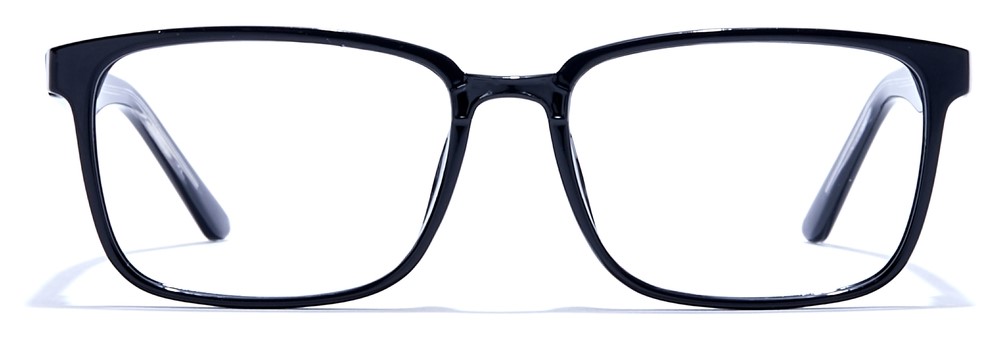
I need a break from even my own occasional commentary on U.S. politics, world affairs and learning from other countries. So I’ll instead focus on learning from a close relative…
Not Just the Facts
We had an unexpected guest at our Thanksgiving meal: my stepson’s glasses. Or rather, smart glasses that perform like a hands-free phone and much more, and that seem a leap ahead of the ill-fated Google Glass that crashed and burned a decade ago due to concerns about functionality, comfort, appearance, price and privacy.
Before delving into details, I’ll note that I’m pretty much an ignoramus when it comes to tech. I kinda sorta can operate my phone, laptop and TV streaming service to a minimally decent degree. Beyond that, these mysterious Thunder Machines mystify me as much as a thunderstorm might have stunned or scared a Neanderthal.
My stunningly smart stepson, in contrast, is an intellectual jack-of-all trades. One indication of his brilliance is that he’s a huge Bruce Springsteen fan. When he and I saw Bruce at San Francisco’s Chase Center earlier this year, we both went joyously berserk.
Another indication, probably more meaningful (and pardon the shameless plug), is that he and a good friend host a popular podcast, Midnight Facts for Insomniacs, which garners tens of thousands of listeners across the globe. (That’s nowhere near Joe Rogan territory, but is better than most podcasts do.) He digs up little-known information on often esoteric topics, then banters about them with the friend in an entertaining, funny, iconoclastic and (warning) frequently profane and at times provocative manner.
The hundreds of (free) episodes include: Technology Disasters: From Boeing to CrowdStrike; The Fiery, Pagan History of Halloween; The 7 Wonders of the Ancient World; Deadly Viral Trends and Challenges; Wizards, Dragons, and White Supremacy: The Ku Klux Klan; ScamFluencers: Social Media Grifters and Con Artists; and my favorite (because I suggested it), The Fermi Paradox, A.K.A ”Where are the Aliens?”
But I digress…
This Much Is Clear
The voice-activated glasses (which can come with prescription lenses, but are otherwise simply clear glass) are an iPhone and Apple Watch taken to the next level in terms of easy, hands-free usability: ask questions, get information, make phone calls, send texts, arrange and receive reminders of tasks, listen to music, adjust the volume, etc. They have a camera function that can snap photos and record videos (for which a light goes on to alert others – though how well that alert works might be another matter), and that can forward the images.
They can also identify whatever one’s looking at. For instance, pointed at my stepson’s plate, the glasses told him that he was eating a Thanksgiving meal. Now, telling you what you’re eating admittedly is not Star Trek territory. But the function saves wearers the step of identifying all sorts of other objects (and I’d imagine people), as opposed to remaining clueless or searching for the right phone app to apply.
Other uses for the glasses are in their infancy, or just over the horizon. I find the language translation feature intriguing. Though still crude, it’s just a matter of time before it becomes far more seamless and sophisticated. Some come with augmented reality options. I’d imagine that there are other functions in store that many of us can’t even imagine yet.
Now, some reading this article will already know all about this, understandably yawn and say, “What else is new?” But for our table of relative unsavvy, relatively older types joined by my stepson and his friend, the glasses were certainly something to see (so to speak).
Speaking of oldsters, I can see some promising features of this technology (along with conceivably nastier scenarios). It could assist with aiding memory, recognition, reminders, health, hearing and other functions that could well enrich seniors’ lives.
On the other hand…
Brave New World
There may remain legitimate concerns about privacy for folks being recorded – though the decade since Google Glass has seen so many invasions of this that maybe standards are changing.
Then there’s the eternal tech issue of what comes next. With Elon Musk (who else?) already funding experiments on implantable chips in our brains, the glasses and many more innovations could well give way to such chips down the line. At which point, returning to Star Trek themes, maybe we become the Borg: a hybrid human/computer race of aliens.
Or perhaps the pluses outweigh the minuses in whatever directions this technology takes. Part of me is really curious. And part of me is really thankful that we’re not there yet.
Anyway, enjoy your Thanksgiving leftovers or whatever else you’re gobbling, even without smart glasses to tell you what’s on your plate.
Okay, I have just subscribed to Midnight Facts. And What kind of smart glasses does he have?
They sound wonderful for visually impaired people.